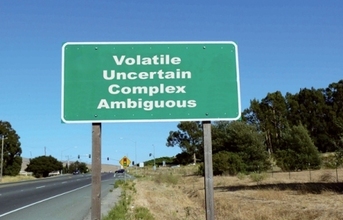
Advances in Technology
Some of the latest advances in technology are the smart machines to enhance man-machine collaboration, 3D printing than has the potential to transform industries and body-adapted electronic gadgets which will provide real-time information about the consumer. As organisations evolve their business strategy to harness the potential of these technologies, supply chain professionals will also need to tailor their planning, sourcing, manufacturing and distribution processes around these developments.
Analytics for decision-making
Predictive models will enable integration of weather pattern changes to demographic data to provide a more accurate forecast of customer demand. Smart devices and sensors will provide end-to-end supply chain and will feed in enormous amount of data. Supply chain planning will then leverage analytics for real-time optimisation and fulfilment decisions.
Cloud computing
Cloud computing offers significant potential to connect all customers and supply chain partners over a single platform with low upfront costs and shorter implementation timelines. As the issues of business process integrity and data security get addressed, more and more organisations will initiate implementation of cloud solutions.
Control over natural resources
The growth of world population and energy requirements will put pressure on natural resources such as energy, water and food. Many firms have already taken positions to exercise control over scarce natural resources which will ensure continuous supply for their captive consumption and also for trading. Different countries are also facing issues of food scarcity and they have signed pacts with other countries to ensure their food security. Due to fluctuations in demand-supply for these natural resources, the prices of such commodities will continue to be volatile.
Policy changes
After the global economic crisis and the threats of sovereign defaults, countries have begun to appreciate the inter-connected nature of the global trade. This is coupled with every country's desire to maximise its own growth and balance inflation. Hence countries have made significant shifts to their regulatory and economic policy and conducted stress tests to prevent recurrence of the crisis. It is believed that over the next decade the regulatory environment will continue to be under pressure.


























